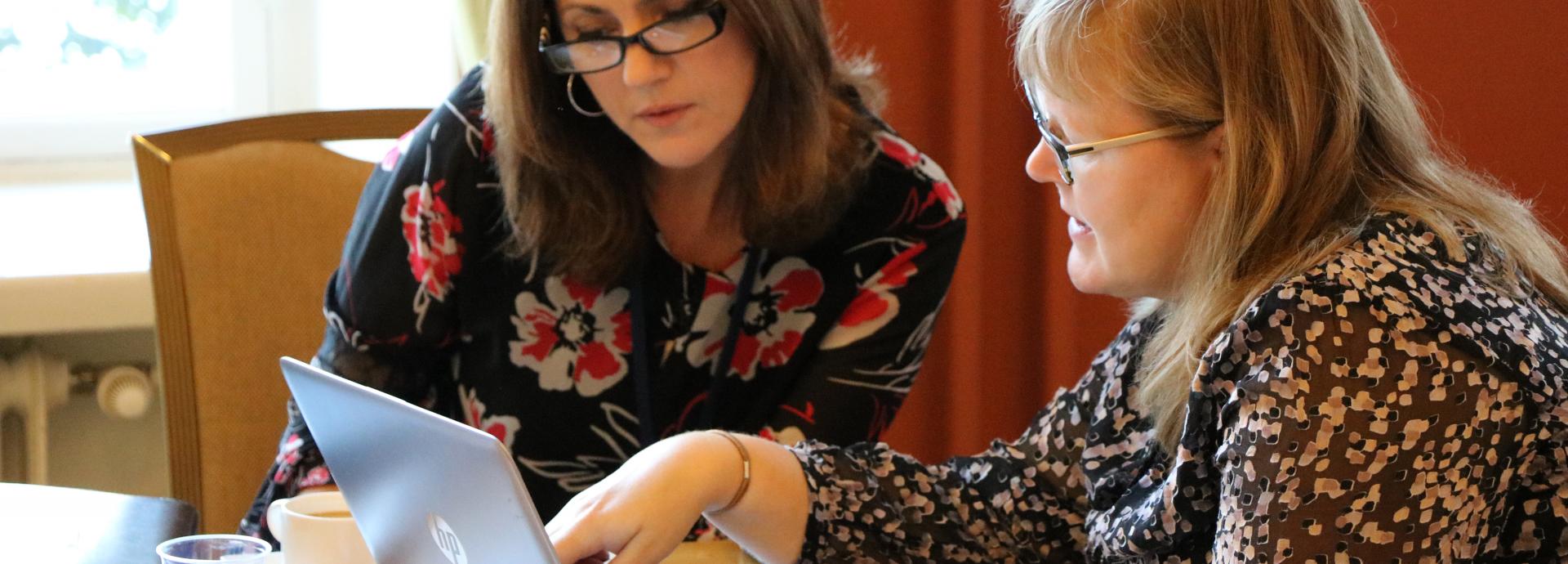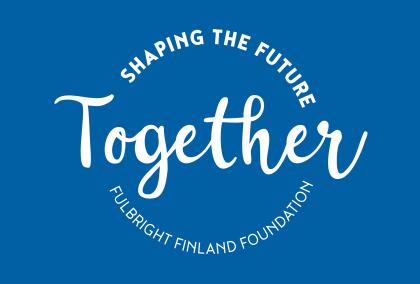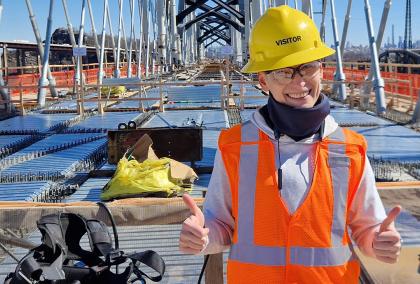

In recent years, we have had students conducting independent research, working in research labs, undertaking a degree program in Finland, working on research towards a PhD at their home university, and even working as a freelance journalist. Because grantees have significant opportunities to tailor their Fulbright experience to their research interests and needs, the student-host relationships will be equally as diverse.
For students entering a degree program, their institutional affiliation may be a bit more straightforward. But for research students, it may be less clear how to think about finding and working with a host institution in Finland.
How to find a suitable advisor, research group, or study program?
To locate a suitable research advisor, research group, or study program in Finland, please use the tips and advice given below.
- To locate suitable study programs offered in English, visit the Opintopolku website which allows you to search different study programs, for example, by field and level of study.
- If you are a research student and searching for a research advisor, look into the different higher education institutions in Finland, their schools, departments, research groups, and faculty, and contact suitable faculty members.
- You may also wish to find out in which Finnish universities the previous U.S. Fulbright grantees have spent their Fulbright period. For information on the previous grantees, their field of study, project title, and host institution, please visit the Fulbright grantee lists. The list also includes similar information on the Finnish grantees to the U.S.
- Take a look at a society or association that represents your specific discipline in Finland. They may be able to point you in the direction of a suitable Finnish institution.
- Learn about research in Finland to locate a suitable host institution or research group.
In Finland, there are several Centres of Excellence in Research nominated by the Research Council of Finland. These centers represent the top research fields and environments in Finnish science. Please see the list of the Centres of Excellence.
The Research Council of Finland funds special research programs called Academy Programs. They are science-driven, thematic, and target-oriented bodies of research projects that are aimed at supporting scientific regeneration and increasing scientific and societal impact. These programs are for instance in the following fields: health, mineral resources, energy, digital humanities, learning and skills, bioeconomy, synthetic biology.
You may also find interesting the research projects funded by the Strategic Research Council, which combine high-quality science with great societal impact. These projects seek concrete solutions to grand challenges that require multidisciplinary approaches in close collaboration with various stakeholders.
- The Fulbright Fulbright Finland's site on Research in Finland.
Higher education institutions in Finland
There are two types of higher education institutions in Finland; universities and universities of applied sciences (UAS). Universities, which are academic or artistic institutions, focus on research and education based on research. They confer Bachelor's, Master's, Licentiate, and Doctoral degrees. There are 14 universities in Finland.
There are two types of higher education institutions in Finland:
universities and universities of applied sciences (UAS).
The Finnish 24 UAS' offer work-related education in response to labor market needs. UAS' confer Bachelor's and Master's degrees.
The Finnish universities provide over 300 Master’s degree programs and about 60 special Doctoral programs with teaching in English.
How to approach a potential host?
In terms of connecting with a potential host, here are a few important tips from the alumni:
- It is ok to ‘cold call’. You don’t need to have a pre-existing relationship with an academic in Finland in order to secure a host. If you already know someone with whom you want to work, that obviously makes the process a bit simpler, but if you don’t, it’s not a problem. The key is to find someone whose work is compatible with your research interests.
- Be prepared and clear about expectations. When you contact a prospective host, you need to be as clear as possible about your research aims (this will help to ensure a good fit) and also to try to be clear about what kind of support you would like to have from your host. Some students may not really want or need much from their hosts (in terms of research or logistical support) while others may want or need more. The key is to try to articulate these expectations and aims as clearly as possible to ensure a good fit. If you would like to work closely with your host in the formulation of your research strategy, it is better to state that clearly and allow your host to evaluate whether or not he or she can provide that kind of support.
- Provide your prospective host with resources if needed. There are resources that describe the role and expectations of the host on the Fulbright Finland Foundation website. These may be helpful in answering prospective hosts’ questions if they arise. See Information sheet for a prospective host.
Maximizing your host relationship
Once you have secured a host and been selected for a Fulbright Scholarship, the really important work begins! Here are a few important tips from the alumni —some apply to the time before you arrive in Finland while others are relevant to your grant period.
- Once you have received the grant, reread your research statement. By the time you arrive in Finland in the fall, a year will have passed since you submitted your research statement. It is possible that your research plans have changed over that period. Even if you think you have not amended your plans, reread your research statement to familiarize yourself with the specifics you proposed. Then, if there have been any changes (subtle or significant) make sure you communicate these with your host.
- Begin communicating with your host early and often. Make sure your plans for your Fulbright term are concrete and detailed already before your arrival to Finland. Discuss your plans with your host. The key at this stage is to not make any assumptions!
- Continue the conversation upon arrival. The key to making the most of your grant period and to maintaining a productive relationship with your host will be to communicate clearly about expectations.


